How to Find Recent Genealogy Records That Are Not Online Yet

Records that have been created recently are difficult to find and access. Some privacy laws protect, and hinder, our being able to find more recent birth, marriage, and death records we need. Here are some tips for finding these and other genealogy records not yet online.
Recently, Tom in Olympia, Washington wrote us with a question about how to find recent genealogy records that are not online yet.
“My wife’s mother was adopted in 1925. We have found her biological mother’s name and through Ancestry.com, I’ve found several bits of information about her from census records. She also was a crew member on three steamships in the 1930s. On two of the ship manifests, her U.S. passport numbers are listed. Do you know any search options for finding information from passports in the 1930s?”
Maybe you have had a similar question. We hope our answer helps everyone more easily find genealogical records that are not online yet.
Obtaining Recent Passport Application Records
Tom will be interested in obtaining a passport application record which may hold more information about his targeted ancestor. As Tom already discovered, U.S. passport records are online at Ancestry and FamilySearch, but only those records prior to 1925.
My original hope was that the National Archives Records Administration would have had the passport application records for the 1930s. I googled passport applications National Archives, and the first search result took me to an excellent article. I learned the U.S. State Department has passport applications on microfilm between the years and dates of 1795 to 1905 and January 2, 1906 – March 31, 1925. Sadly, these were not the years Tom was looking for.
To find information about passport applications in the 1930s, I needed to go another route. I opened a new window and googled U.S. State Department passport applications request copy. The first search result took me right to the page I needed. The Passport Services maintain the U.S. passport records from 1925 to the present. These records are protected by the Privacy Act of 1974.
Passport records in this time frame for a third-party person are processed under the Freedom of Information Act. These records need to ordered by mail. Tom can make a request in writing and send that request to:
U.S. Department of State
Office of Law Enforcement Liaison
FOIA Officer
44132 Mercure Cir
P.O. Box 1227
Sterling, VA 20166
I suggested he mention his desire for the information is for genealogical purposes and what his relationship is to the person in question.
Using the Same Strategy for Other Recent Genealogy Records
Remember, this same kind of strategy applies to other genealogical records you might be looking for that were created recently. You can use Google searches and follow-up phone to find out where more recent records are and the access policies.
As an example, a recent Indiana marriage license index can be searched and viewed online for free at the Public Access records website for the state. I found this little goody by googling Indiana marriage records.
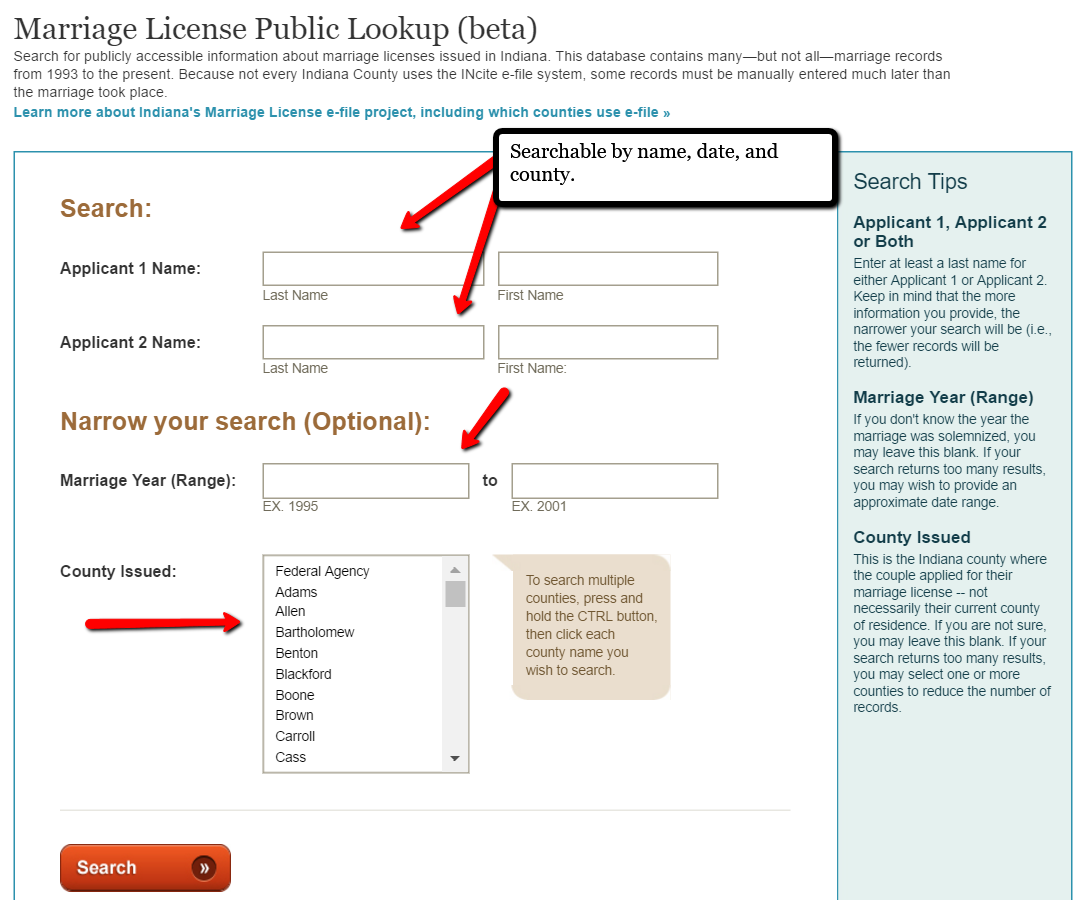
All of us at Genealogy Gems adore having the opportunity to find and share solutions like this one for overcoming the problem of locating recent genealogy records that aren’t online. If you haven’t done so already, sign-up for our weekly newsletter for more tips and tricks. Oh, and write to us anytime with your genealogy questions! We love to hear from you!
More Gems on Recent Genealogy Records

Other recent genealogy records in the U.S. are also available via the provisions of the Freedom of Information Act (FOIA). Click here to read about them! They include post-World War II draft registrations, immigration and naturalization documents and Social Security applications (SS-5).
New Archival Collections: How to Know What’s New at Your Favorite Repository
New archival collections at your favorite repository may be the long-awaited key to solving your family history mysteries! But how can you keep up with what’s new at archives and libraries? Professional archivist Melissa Barker shares her favorite tips.
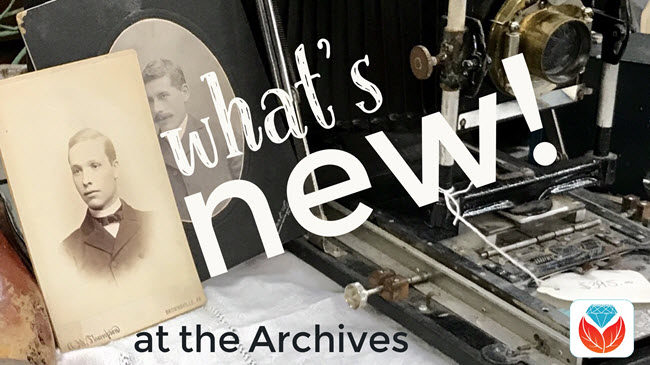
Not long ago, Lisa Louise Cooke read my article on what’s new at the Utah State Archives. She asked me how I keep up with new archival collections at my favorite repositories.
New Archival Collections May Be Just What We Need
Many of us can say that our ancestors were living in a certain area and their records should be located at certain local archives, libraries, or genealogical or historical societies. Maybe we have even done research there in the past, either by visiting the facility, contacting them by phone or email, or using their records online. Records, photographs, ephemera, and artifacts are constantly being discovered and made available in all of our wonderful archives. Many of these records may not make it to microfilm or online, but they are so rich with family information. (Don’t know where to look? Click here to learn how to find archives and libraries near your ancestor’s locale.)
But trying to keep up with all the new records that are being processed in archives, libraries, and genealogical societies can make your head spin! So how are genealogists supposed to stay current?
3 Ways to Keep Up with New Archival Collections
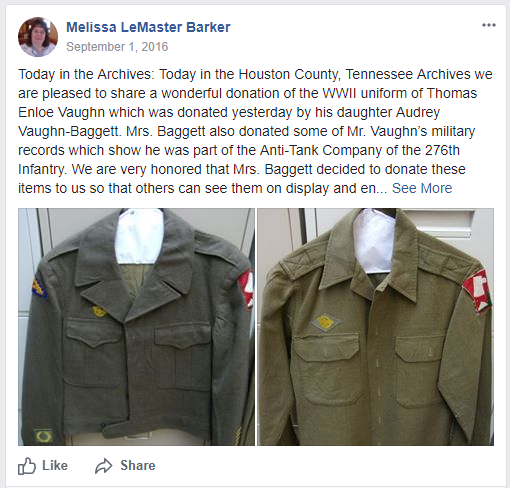 1. Check the archives website. See if they have announced new records collections that are available for research (many archives do). The archives may even have a blog or newsletter that you can subscribe to, which will give you the latest news right at your fingertips. Not only will the archives announce new records that are available but they will even let their patrons know what has been recently donated to the archives and which records are currently being processed.
1. Check the archives website. See if they have announced new records collections that are available for research (many archives do). The archives may even have a blog or newsletter that you can subscribe to, which will give you the latest news right at your fingertips. Not only will the archives announce new records that are available but they will even let their patrons know what has been recently donated to the archives and which records are currently being processed.
2. See if the archive has a social media presence. Archives like to post photos of new discoveries and records collections that are ready for the researcher. I know at the Houston County, TN. Archives I like to scan and post images of great documents or artifacts to Facebook, Twitter, Instagram, and Pinterest. (Like the post pictured here that I shared recently.)
LISA’S TIP: Remember to use Google search terms to find your favorite archive’s website and social media homes! A quick search such as National Archives Pinterest might be faster than trying to find it on the actual social media site. That search brings up tempting boards for National Archives in both the US and the UK:
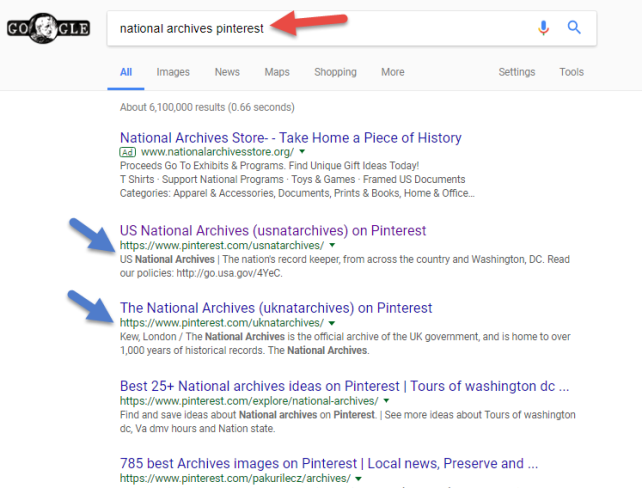
3. When visiting an archive, ask: “What’s new?” Talk to archivists about records collections that have recently been processed and made available for research. This is a great way to find more information and records about your ancestors. As an archivist who processes records on a daily basis that are not online or even microfilmed, I get excited about sharing what I find with the genealogy community.
Until next time, this is The Archive Lady, remember it’s not all online, so contact or visit an archive today!
Learn More about Using Archival Collections
 Listen to me on the free Genealogy Gems Podcast! This year the podcast is celebrating its 10th-year anniversary. Tune in to hear more inspiring stories and tips to help your family history research. Listen on your computer or on your mobile device through the Genealogy Gems app. Click here to learn more.
Listen to me on the free Genealogy Gems Podcast! This year the podcast is celebrating its 10th-year anniversary. Tune in to hear more inspiring stories and tips to help your family history research. Listen on your computer or on your mobile device through the Genealogy Gems app. Click here to learn more.
Family History Episode 35 – Do Your Genealogy at the Public Library, Part 2
Family History: Genealogy Made Easy Podcast
with Lisa Louise Cooke
Republished June 11, 2014
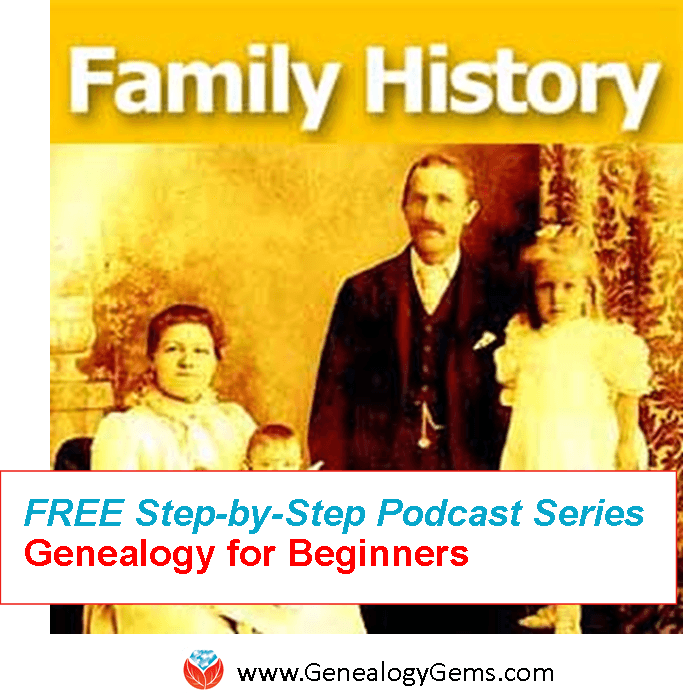
Listen to the Family History: Genealogy Made Easy podcast by Lisa Louise Cooke. It’s a great series for learning the research ropes and well as refreshing your skills.
https://lisalouisecooke.com/familyhistorypodcast/audio/fh35.mp3
Download the Show Notes for this Episode
Welcome to this step-by-step series for beginning genealogists—and more experienced ones who want to brush up or learn something new. I first ran this series in 2008-09. So many people have asked about it, I’m bringing it back in weekly segments.
Episode 35: Do Your Genealogy at the Public Library, Part 2
In Episode 34, Patricia Van Skaik, Manager of the History and Genealogy Department of the Public Library of Cincinnati and Hamilton County, talked with me about the unique genealogical resources in public libraries just waiting to be discovered. She gave us some great ideas on how to prepare for your visit to get the most out of your time at the library.
Today, we go deeper into genealogy research at the public library. Pat is back and she talks to us about:
- How to search an online library card catalog, including advanced search methods;
- What kinds of unique collections may be at public libraries, and helps us learn to ask for exactly what we want!
- The obstacles librarians face when it comes to cataloguing large and unique collections that may interest genealogists.
So dust off your library card and grab your book bag and let’s head back to the public library!
Top Library Tips from Pat and Lisa
- You don’t have to be advanced on computers to use advanced searches. Use these to home in clearly on what you’re looking for!
- Don’t think of the public library as just as place to go look at their holdings. Talk to librarians about how to use resources (databases, websites) and how to evaluate what you’ve discovered.
- Some items are buried at the library. Asking for help may lead to accessing just the records you want. Examples include items in pull-out collections, closed stacks (not in the public areas of the library) and maps, which aren’t always listed in the card catalogue.
- Tell the staff what materials are important to you. Your interest may lead these items to become more accessible, or be indexed or digitized.
Separate your search terms in advanced searches. Don’t just keyword search “marriages San Francisco.” Enter these terms separately in the advanced search. You may bring up items not found while searching these keywords together.
A lot of local history and genealogy materials do not circulate through interlibrary loan. Some items are totally unique and people travel to that library to see it, so they don’t send it out. One option is to ask the librarian to check the index and table of contents, then scan or photocopy the pages of interest to you and send them. There may be a charge for this but it’s better than not being able to get the book at all!
Finally, don’t make assumptions. Particularly, Pat says, don’t assume that…
- A small library doesn’t have much advanced technology;
- A library resources only cover its immediate locale; and
- If you can’t see it is not there! Ask about closed stacks.
Links for Public Libraries and Library Resources
WorldCat.org (to search for materials across multiple libraries)
Library Finder websites:
